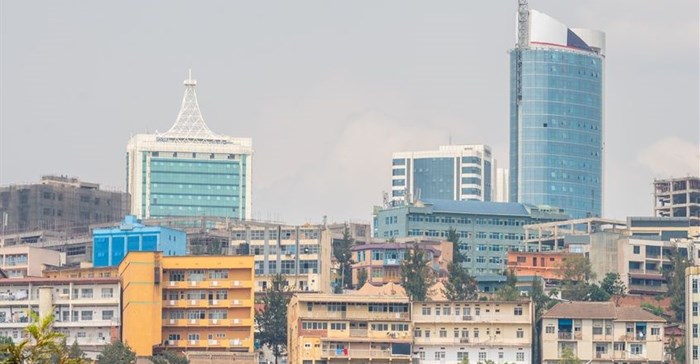KIGALI, Rwanda - Africa's rapid urbanisation can be a driver of industrialisation, and there is an urgent need to connect policies and strategies for urban and industrial development for better performing cities and industries.

Kigali, Rwanda. © Dereje Belachew via
123RFAfrican countries should put in place industrial policies that will generate the skilled jobs and productivity gains needed for the structural transformation of their economies.
By 2035, half of Africa's population will be urban, compared to just one third in 1990. This rapid urbanisation creates growing challenges in terms of infrastructure and services’ needs, but it can also be a driver of industrial development on the continent, under the right policy framework.
In this context, the latest Economic Report on Africa by the UN Economic Commission for Africa (ECA), Industrialization and Urbanization for Africa's Transformation, makes concrete recommendations for harnessing the rapid urban transition.
Industrial policies needed
During the launch of the report by the ECA in Eastern Africa, Giovanie Biha, ECA's deputy executive secretary, stressed that, "African urbanisation has not been driven by improving agricultural productivity or increased industrial output, as has been the case elsewhere. On the contrary, it has been dominated by the expansion of the informal sector – often services.
“To foster enhanced growth and poverty eradication, African countries should put in place industrial policies that will generate the skilled jobs and productivity gains needed for the structural transformation of their economies.”
By 2035, half of Africa's population will be urban, compared to just one third in 1990.
According to Edlam Yemeru, chief of urbanisation section at ECA, there is an urgent need to connect policies and strategies for urban and industrial development for better performing cities and industries.“Coordinating urban and industrial development is possible by linking economic and spatial policies in the context of national development planning,” said Yemeru
Speaking on behalf of the government of Rwanda, Richard Mushabe, division manager of national planning and research at Ministry of Finance and Economic Planning, highlighted that urbanisation requires coordinated initiatives. “We need an integrated plan which ensures that our cities can improve the lives of our people and can enhance inclusive growth our economies.”
The launch of the 2017 Economic Report on Africa also provided an opportunity to discuss the challenges of industrialisation and structural transformation on the continent and for Eastern Africa in particular.
In most of the 14 countries covered by the SRO-EA, the share of the manufacturing sector has been stagnant or declining over the past 10 years, while the services sector has expanded rapidly.
Growth outlook for Eastern Africa
Despite a weak structural transformation process, the long-term growth outlook remains promising in Eastern Africa. The GDP growth rate is estimated at 5.6% in 2017, the same as in 2016. This is down from the exceptional performance of the past five years, with Ethiopia achieving an average annual growth rate of 9.5% and Rwanda 7.2% between 2012 and 2016, but it remains well above the African continent average of 3.1% in 2017.
Andrew Mold, acting director of ECA in Eastern Africa, highlighted some of the growth catalysts such as massive investments in infrastructure or dynamism of some service sectors (such as trading, finance, and tourism). However, these increased investments have also started to stretch budgets and structural constraints remain such as weak credit to the private sector or exchange rate volatility.

























